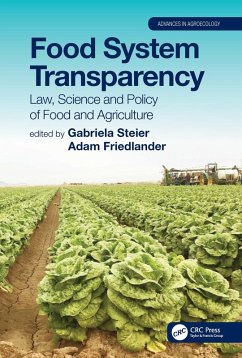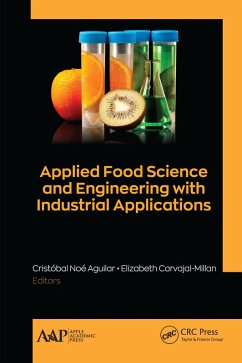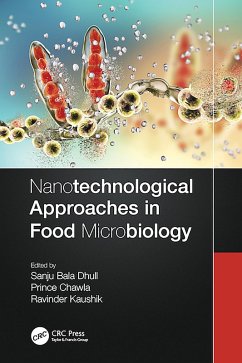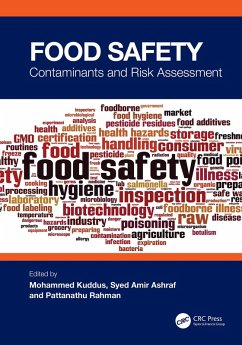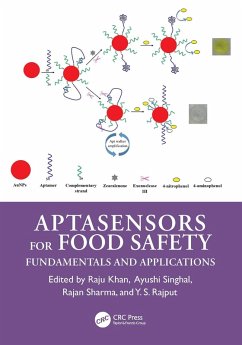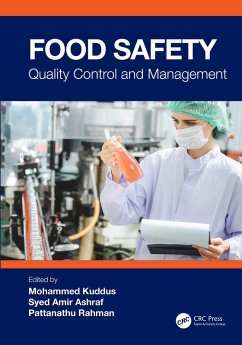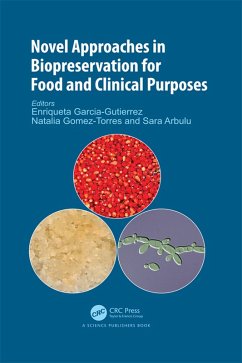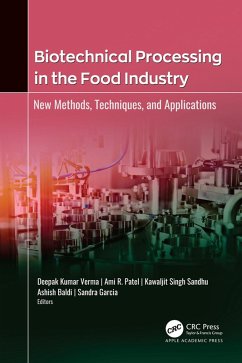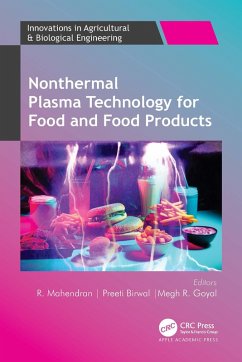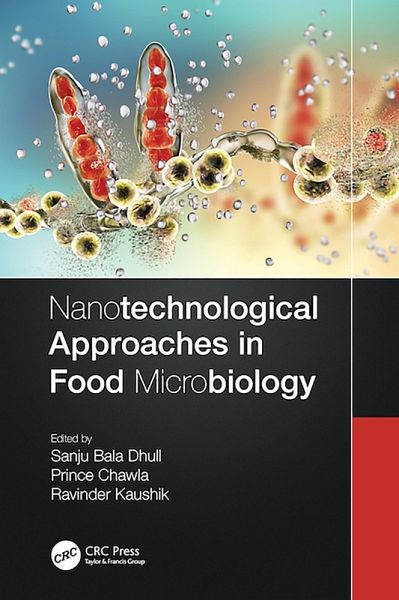
Nanotechnological Approaches in Food Microbiology (eBook, ePUB)
Versandkostenfrei!
Sofort per Download lieferbar
64,95 €
inkl. MwSt.
Weitere Ausgaben:

PAYBACK Punkte
32 °P sammeln!
Nanotechnology has gained attention in all aspects of modern science, having vital applications in the food chain, storage, quality monitoring, processing, preservation, and packaging. The global population is increasing rapidly, therefore there is a requirement to produce food products in a more proficient, non-toxic, and sustainable way. Food scientists and microbiologists are interested in food safety and quality assurance to produce excellent-quality food free of food pathogensNanotechnological Approaches in Food Microbiology provides a systematic introduction and comprehensive information...
Nanotechnology has gained attention in all aspects of modern science, having vital applications in the food chain, storage, quality monitoring, processing, preservation, and packaging. The global population is increasing rapidly, therefore there is a requirement to produce food products in a more proficient, non-toxic, and sustainable way. Food scientists and microbiologists are interested in food safety and quality assurance to produce excellent-quality food free of food pathogens
Nanotechnological Approaches in Food Microbiology provides a systematic introduction and comprehensive information about practical approaches and characteristic features related to the significant applications of nanotechnology in food microbiology, including, nano-starch films, nanoemulsions, biogenic nanoparticles, and nanocapsules. The book will explore details about metal nanoparticle synthesis, characterization, mathematical modeling, kinetic studies, and their antimicrobial approaches.
Key Features:
This book will educate readers on the aspects of nanotechnology in food safety and quality assurance. Nanoemulsions, nanohydrogels, metal nanoparticles, nano-starch films, nanocapsules and nano-antimicrobials are the emerging essentials of nanotechnology that are used to preserve the food at greater extent. This book should be of interest to a large and varied audience of researchers in academia, industry, food processing, preservation, packaging, microbiology and policy regulations.
Nanotechnological Approaches in Food Microbiology provides a systematic introduction and comprehensive information about practical approaches and characteristic features related to the significant applications of nanotechnology in food microbiology, including, nano-starch films, nanoemulsions, biogenic nanoparticles, and nanocapsules. The book will explore details about metal nanoparticle synthesis, characterization, mathematical modeling, kinetic studies, and their antimicrobial approaches.
Key Features:
- Includes comprehensive knowledge on metal nanoparticle synthesis, characterization, mathematical modeling, kinetic studies and their antimicrobial approaches
- Lays out concepts of essential oil nanoemulsion and their potential antimicrobial applications
- Deals with the latest development in nano-starch composite biofilms containing bioactive constituents to inhibit pathogenic microbes
- Explores the nanocapsules as potential antimicrobial agents in food.
- Provides information regarding new biogenic nano-antimicrobials developed for the food safety and quality assurance
This book will educate readers on the aspects of nanotechnology in food safety and quality assurance. Nanoemulsions, nanohydrogels, metal nanoparticles, nano-starch films, nanocapsules and nano-antimicrobials are the emerging essentials of nanotechnology that are used to preserve the food at greater extent. This book should be of interest to a large and varied audience of researchers in academia, industry, food processing, preservation, packaging, microbiology and policy regulations.
Dieser Download kann aus rechtlichen Gründen nur mit Rechnungsadresse in A, B, BG, CY, CZ, D, DK, EW, E, FIN, F, GR, HR, H, IRL, I, LT, L, LR, M, NL, PL, P, R, S, SLO, SK ausgeliefert werden.




